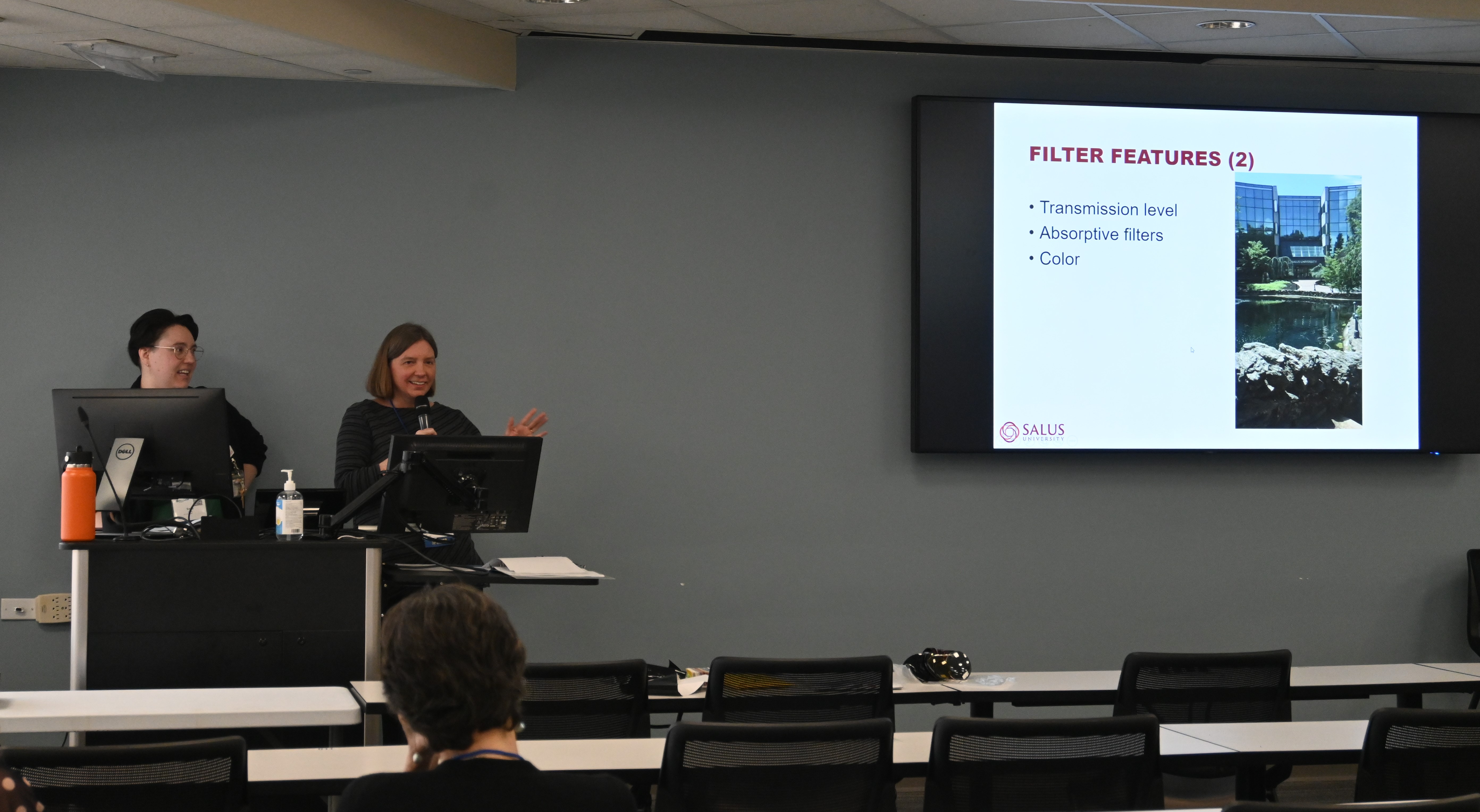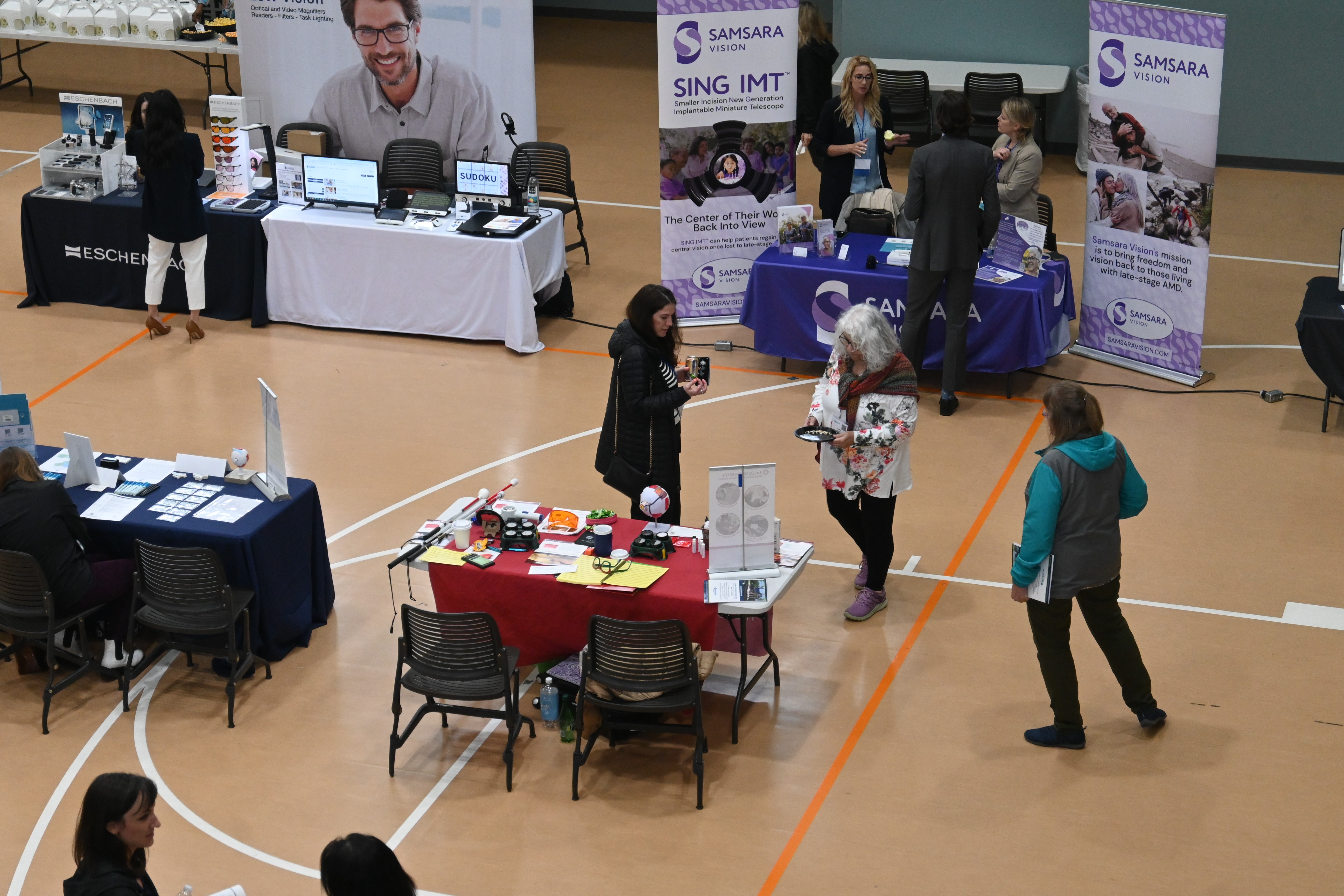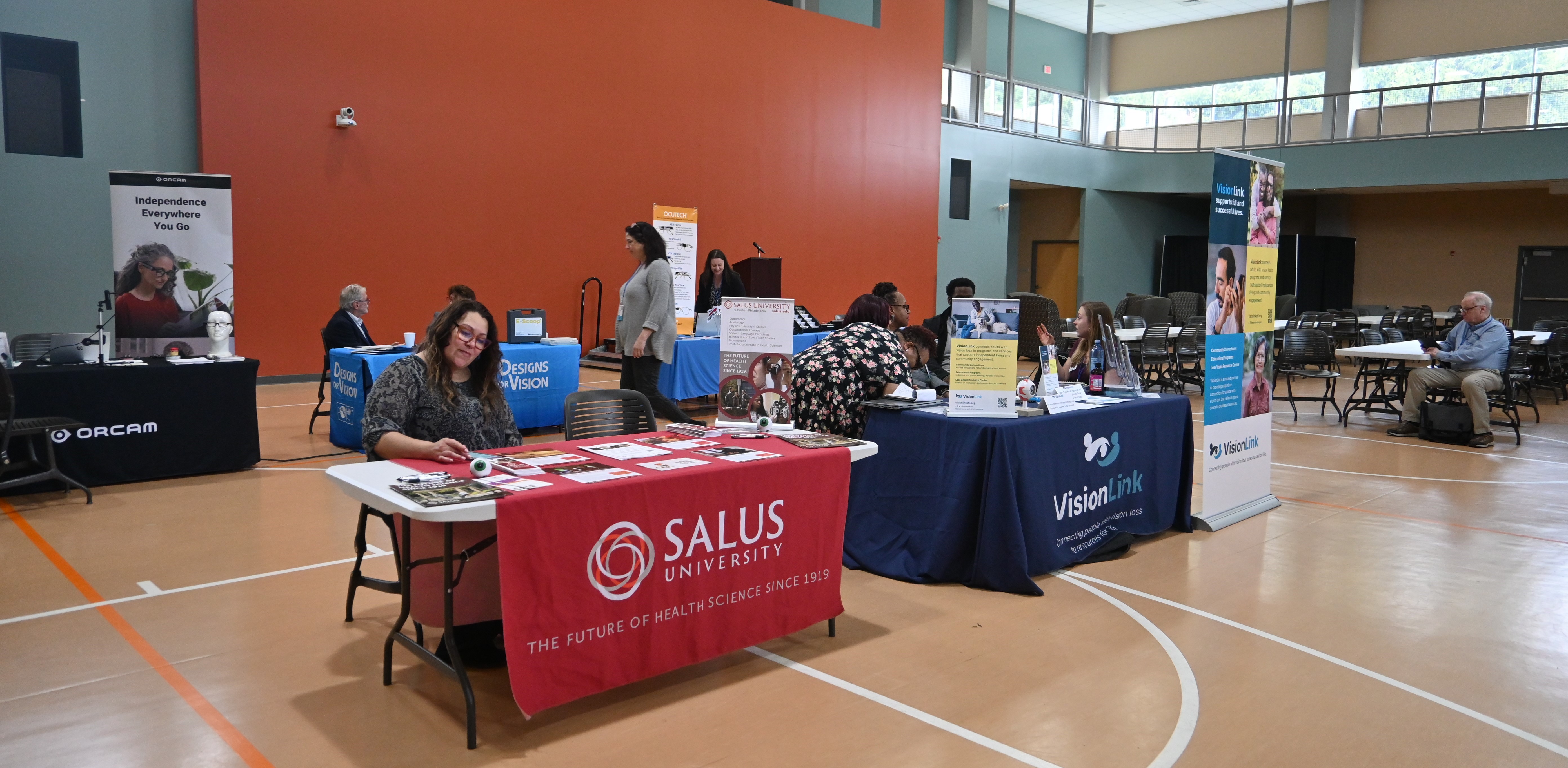Low Vision Rehab and Research Conference
The Envision Conference East 2024 held at the Elkins Park, Pennsylvania campus of Salus University was an opportunity to keep up with the latest ideas and advancements in research, practice, and technology, regarding vision rehabilitation.
 The inaugural event ran from April 11-13, 2024, and was described as a multidisciplinary low vision rehabilitation and research conference by Envision University in collaboration with the University’s Pennsylvania College of Optometry (PCO), the William Feinbloom Low Vision Rehabilitation Center, housed at The Eye Institute (TEI), the clinical teaching facility for PCO, and the University’s Blindness and Low Vision Studies and Occupational Therapy programs.
The inaugural event ran from April 11-13, 2024, and was described as a multidisciplinary low vision rehabilitation and research conference by Envision University in collaboration with the University’s Pennsylvania College of Optometry (PCO), the William Feinbloom Low Vision Rehabilitation Center, housed at The Eye Institute (TEI), the clinical teaching facility for PCO, and the University’s Blindness and Low Vision Studies and Occupational Therapy programs.
The target audience for the conference included optometrists, ophthalmologists, occupational therapists, rehabilitation therapists, licensed visual therapists, vision researchers, nurses, industry representatives, special education teachers, community agency personnel, government policymakers, rehabilitation engineers, and assistive technology practitioners and suppliers.
Monica Casey-Gee, OD, traveled from New York, where she works for the Northeastern Association of the Blind in Albany, for the conference.
 “I liked all the speakers that I’ve seen and I’ve also enjoyed talking to some of the representatives in the exhibit hall, catching up with people I’ve seen in the past and with all the new products as well,” said Dr. Casey-Gee. “The different things that you learn at this conference, hopefully you can incorporate back home with your patients. And, hopefully it brings to mind some things you may have forgotten in the past.”
“I liked all the speakers that I’ve seen and I’ve also enjoyed talking to some of the representatives in the exhibit hall, catching up with people I’ve seen in the past and with all the new products as well,” said Dr. Casey-Gee. “The different things that you learn at this conference, hopefully you can incorporate back home with your patients. And, hopefully it brings to mind some things you may have forgotten in the past.”
The objective of the conference was to:
- Apply the most current research and clinical practices in low vision rehabilitation.
- Recommend appropriate patients who could benefit from low vision rehabilitation.
- Differentiate between the roles and scope of practice among the multidisciplinary professionals involved in the continuum of care of low vision patients.
- Assess the potential of patients for maximizing functional vision through low vision rehabilitation.
- Promote awareness of research results ready for rehabilitation service delivery by disseminating findings to healthcare communities.
- Choose appropriate resources and adaptive strategies for patients with permanent vision loss.
- Analyze strategies for strengthening the role of low vision on the public health agenda.
- Examine disparities in access to low vision care.
- Identify practice gaps in low vision care delivery methods.
Thirty hours of education and research were presented over three days and participants could receive up to 15 hours of continuing education credit. There were also tables set up in the exhibit hall at the University’s Hafter Student Community Center to view the latest in vision rehabilitation techniques and assistive devices they can utilize in patient care.
